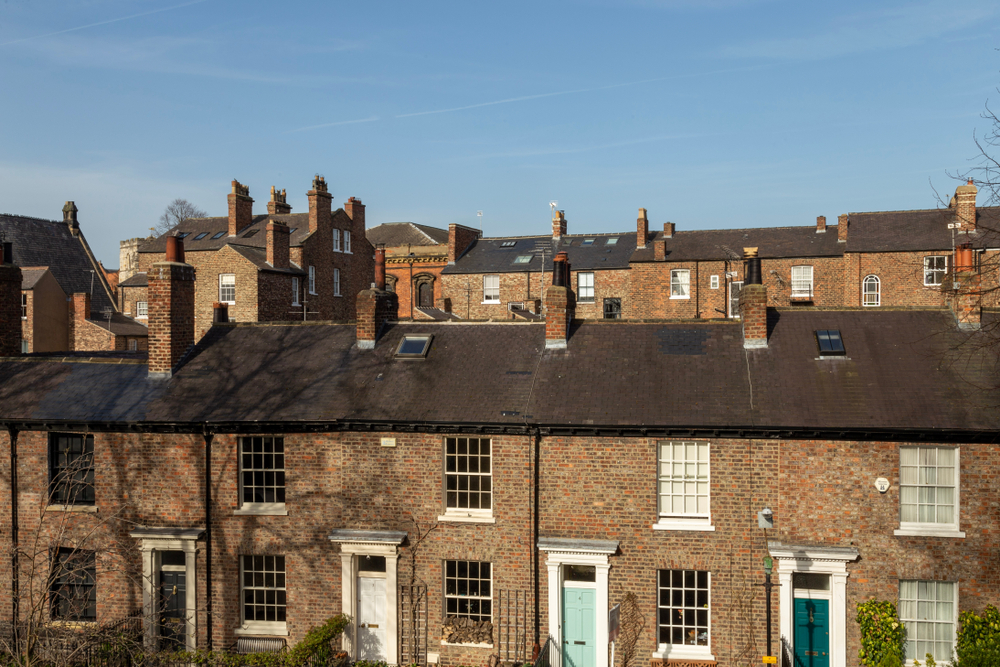Urgent Action Needed in Adapting Historic Homes for Energy Efficiency
As the UK strives to meet its ambitious Net Zero carbon emissions target by 2050, historic homes are emerging as a critical yet challenging component in this transition. The government’s Heat and Buildings Strategy underscores the commitment to reducing carbon emissions and enhancing energy efficiency. However, the unique characteristics of historic homes, constituting a substantial portion of the UK’s building stock, present distinctive challenges.

Adapting historic homes for energy efficiency:
Baroness Joanna Penn, Parliamentary Under Secretary of State for Levelling Up, Housing, and Communities, alongside Lord Parkinson of Whitley Bay and Lord Callanan, led a recent government review emphasising the importance of historic homes in achieving Net Zero objectives. With approximately 5.9 million buildings constructed before 1919, historic properties represent a significant proportion of the UK’s building stock.
While these buildings are crucial for preserving the nation’s heritage, they pose challenges in terms of retrofitting for energy efficiency. The review highlights practical planning barriers faced by owners of listed buildings and homes in conservation areas. The planning process, often perceived as complex and time-consuming, can deter homeowners from pursuing retrofit measures. Furthermore, the review highlights significant shortfalls in competence and expertise to meet this challenge with a few “industry experts” being unable to meet the expected market demands.
This comprehensive review has provided valuable insights into the tangible challenges associated with incorporating energy efficiency measures and low carbon heating in historic homes. The report provides a summary of “current actions and future commitments”. These initiatives aim to simplify the lives of historic property owners and occupants, ensuring the preservation of an irreplaceable facet of our nation’s heritage for the enjoyment of future generations. The strategic steps outlined in the report represent actions to facilitate the enhancement of energy efficiency while maintaining the safeguarding of local amenity and heritage assets.
Key Notes:
- Implementation of the newly updated National Planning Policy Framework (NPPF), including a new policy to support energy efficiency improvements to existing buildings.
- Consult on changes to permitted development rights for heat pumps in England.
- Consultation on National Development Management Policies including specifically on improvements to historic buildings.
- Consult on the opportunities for greater use of Listed Building Consent Orders (LBCOs) to support energy efficiency improvements to listed buildings.
- Development of a new digital planning system.
- Funding for over 100 local authorities to participate in pilots and pathfinder programmes which identify challenges faced by local planning authorities, including skills and capacity challenges and constraints.
- Evidence gathered as part of this review into the capacity and capability issues in the heritage specialism will be fed into wider work on local authority planning capacity and capability.
- Improve the targeting and promotion of training (including written guidance, training and technical webinar series) to ensure maximum impact on professional audiences.
- Developing proposals to improve EPC metrics, taking account of Climate Change Committee advice. This will aim to ensure that EPCs are better able to support the retrofit of historic homes.
- Determine which energy efficiency measures need planning permission or listed building consent; this information will be hosted on GOV.UK.
- Inform and advise the review of Energy Performance Certificates (EPCs) to ensure they can be a useful tool to inform energy efficiency in traditional buildings.
- Support government to achieve the key outputs of the Energy Performance Certificate Action Plan.
- Explore how retrofit funding programmes can support complex-to-decarbonise homes and historic buildings.
Elmhurst Response:
Steven Marriott, Elmhurst’s Retrofit Scheme Manager, expressed support for the government’s efforts and emphasised the benefits of retrofitting older and traditional buildings:
“Retrofitting historic homes is not just a necessity for meeting our Net Zero goals; it’s an opportunity to preserve our cultural heritage. With the right skills and knowledge, professionals can navigate the challenges and contribute to making these structures more energy-efficient, ensuring their longevity for future generations.”
To read the full Government review, click the following link: Adapting historic homes for energy efficiency: a review of the barriers
Older and Traditional Buildings Training
Elmhurst’s ABBE Level 3 Award in Energy Efficiency Measures for Older and Traditional Buildings is the only on-demand course of its kind in the industry, allowing you to access and complete it at your own pace.
This course is only £395+VAT, or £150+VAT for those living and working in England, as part of a government-funded initiative.
VIEW COURSE > VIEW FUNDED COURSE >
